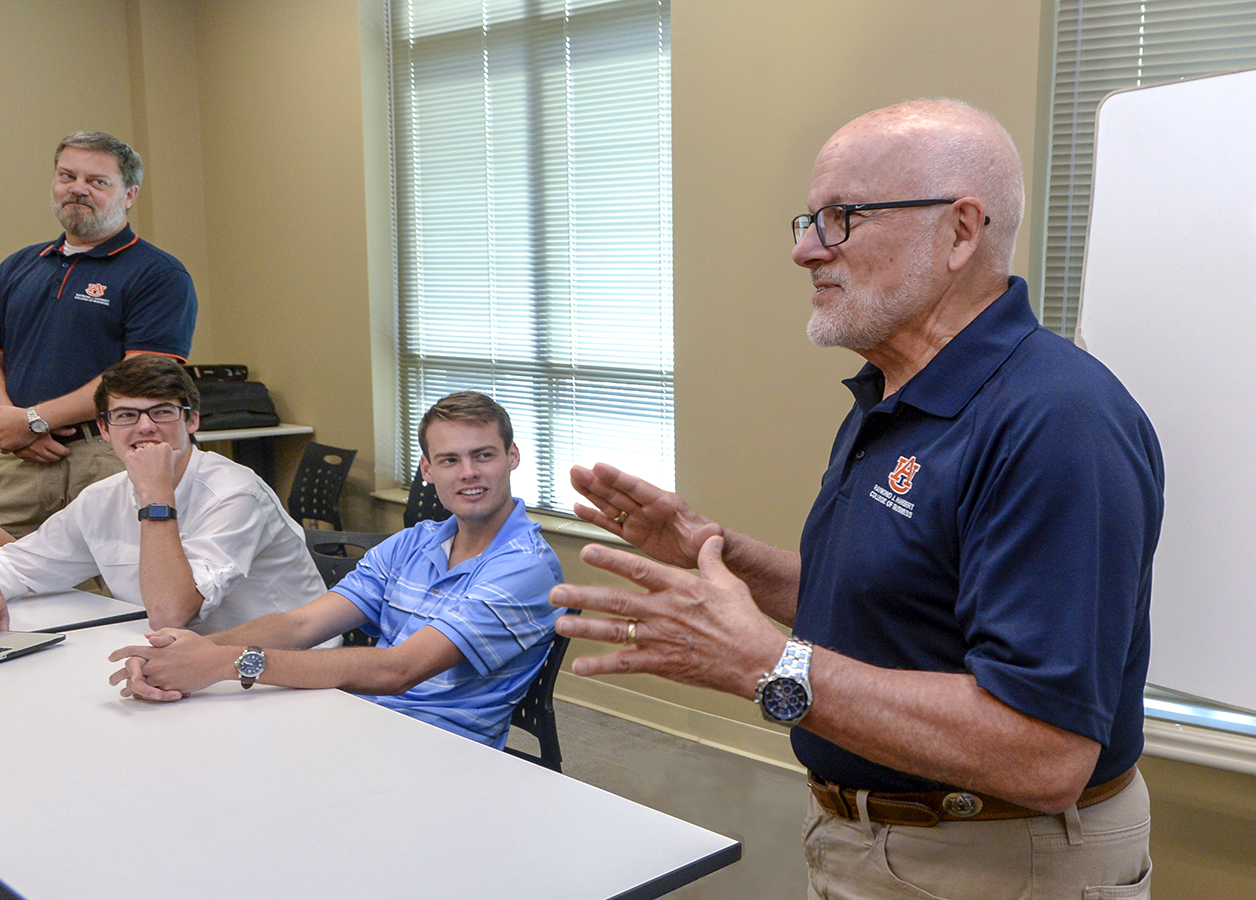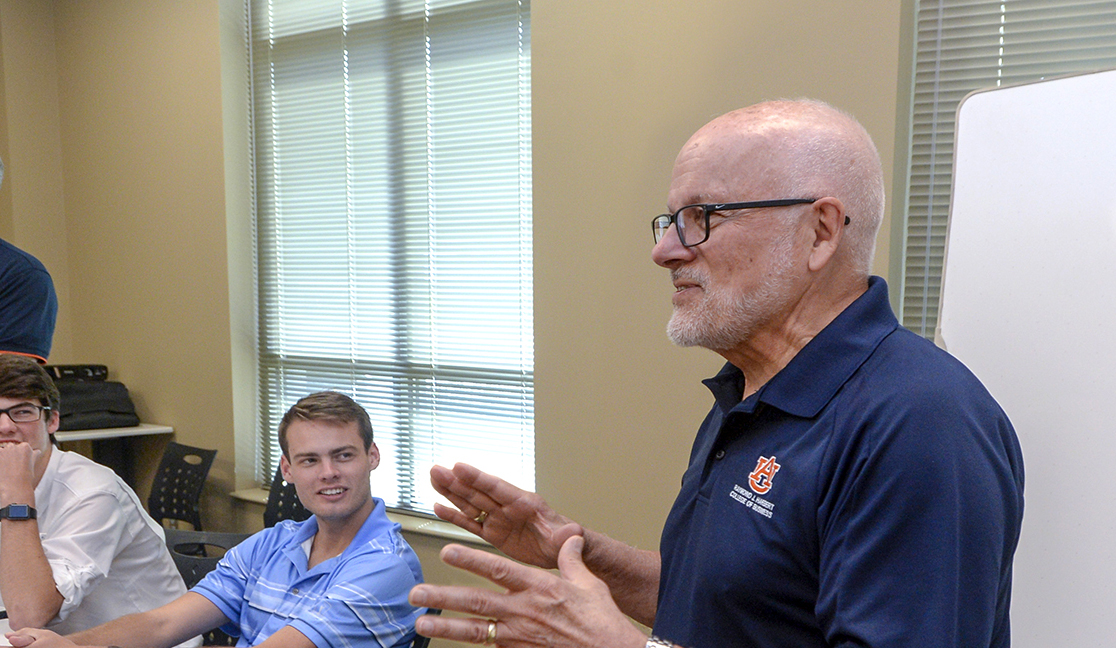 In late 2015, Bill Hardgrave, dean of Harbert College (now Auburn’s Provost), called a group together and asked three questions. (1) Where are we in entrepreneurship compared to the leading U.S. university programs? (2) Where do we want to be in the next five years? and (3) What will it take to get there?
In late 2015, Bill Hardgrave, dean of Harbert College (now Auburn’s Provost), called a group together and asked three questions. (1) Where are we in entrepreneurship compared to the leading U.S. university programs? (2) Where do we want to be in the next five years? and (3) What will it take to get there?
Three great questions—and the same three questions that any potential donor interested in making a gift might ask. To our good fortune, one did so, which added urgency to our work.
We studied 25 other universities in Alabama, the SEC, and the country. And to understand the role of geography, we included universities that are a similar distance from a major metropolitan area. We examined their programs and how they were described to prospective students. While today’s best practices are an important reference point, we queried program leaders about what the ideal program would look like in five years. And we asked successful entrepreneurs about the skills necessary to develop future entrepreneurs.
The leading programs shared a similar vision and had programs and initiatives focused on four major activities:
Faculty and staff pushing the frontiers of entrepreneurial research by studying the behavior of individuals who start and manage businesses. In so doing, these programs bring together academics and successful entrepreneurs to generate the knowledge that drives thought and practice.
With successful entrepreneurs and faculty, educating students on how to develop and evaluate ideas for new products or services, and how to turn those opportunities into successful, ongoing enterprises.
Building campus-wide experiential learning programs that complement teaching with hands-on, real-world activities. Student teams compete for start up funding, start, operate, manage, and grow a business. Collaborating with university and community economic development activities, to create a vibrant entrepreneurial eco-system that nurtures and retains young entrepreneurs.
We worked with our academic colleagues and the Auburn Research and Technology Foundation team to craft a strategy and an execution plan tailored to the resources of the university and the surrounding community. This strategy and execution plan are based on: (1) a university-wide focus in our programs and initiatives, (2) a curriculum that successful entrepreneurs believe will maximize the success for our students, (3) experiential learning programs and the physical infrastructure to support them, (4) research that drives thought and practice, (5) initiatives to help build a surrounding ecosystem to provide funding support and facilities for our students after graduation, and (6) short-term and long-term metrics to measure progress and outcomes.
In just the past year, we have:
• Formed an advisory council of successful entrepreneurs from diverse backgrounds, businesses, and geographies;
• Established a faculty incentive program to encourage additional entrepreneurship-related research;
• Opened up introductory entrepreneurship classes for students campus-wide;
• Hosted the Tiger Cage Business Idea Competition with an expanded prize pool over the previous year, and included a Jr. Tiger Cage Business Idea Competition for high school students;
• Conducted our first summer accelerator program for students and faculty researchers and added three Entrepreneurs-In-Residence to assist in coaching and mentoring;
• Partnered with the City of Auburn to run the first Auburn Regional Alabama LaunchPad Business Plan Competition;
• Graduated two student startups from our incubator program and added four new student teams into the program.
Thanks to the support we are receiving across the university, from the Harbert College, the generosity of Benny and Lynn LaRussa, from a match by Raymond J. Harbert, and from the support of other Auburn graduates, we believe we have what we need to take Auburn entrepreneurship to the next level.
The path forward is simple. We must execute our plans with passion and a sense of urgency, keeping in mind that the process is a marathon, not a sprint. And we must constantly remind ourselves that the only constant in the world is change, and if we are to be successful, we must adjust what we do anticipating and reacting to that change. That is, after all, the entrepreneurial mindset.
Lou Bifano
Director of Entrepreneurship Strategy
Harbert College of Business

